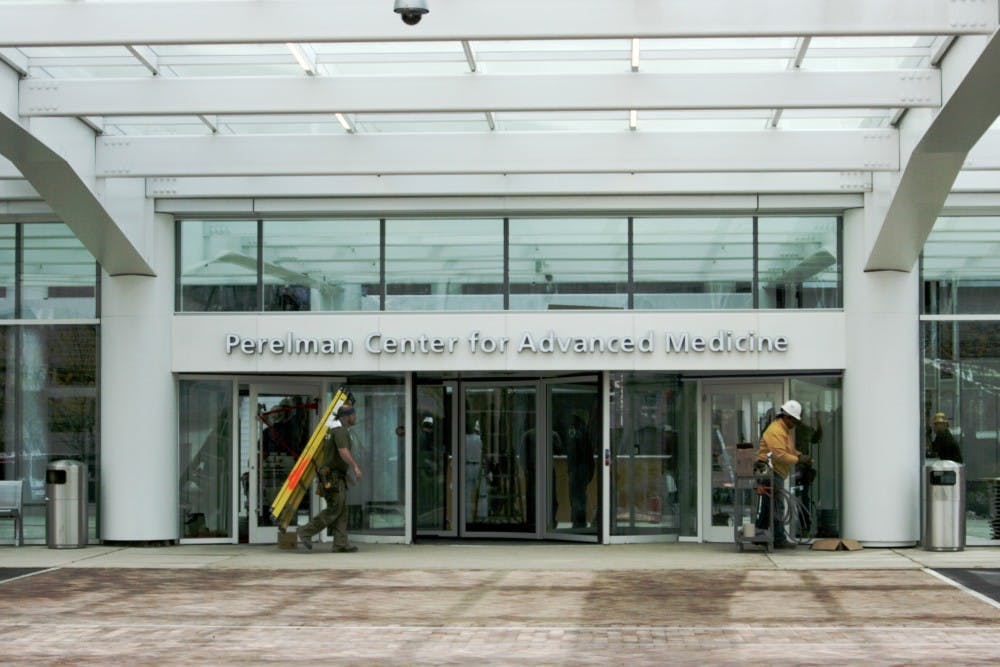
Medical research at Penn is giving HIV-positive patients who need vital organs a reason to hope.
Penn Medicine recently released a study outlining the state of HIV-positive organ donation in America. This study is the first of its kind since the passage of the HIV Organ Policy Equity (HOPE) Act in 2013, which legalized HIV-positive organ transplant research, even though no actual transplants have yet occurred. Previously, HIV-positive people could not donate organs for fear of transmission.
This study revealed that there may be a significant number of viable organs that were previously disregarded on the basis of their HIV infection. The research used data from Philadelphia hospitals to estimate the number of potential HIV-positive donors who would be able to donate their organs to HIV-positive recipients annually.
Even before the HOPE Act, HIV-positive patients in need of transplants faced the same procedures as other patients. “Like with other patients, there are criteria they need to meet to be eligible for organ receipt, most important being that they are actually sick enough to warrant transplant,” Dr. Emily Blumberg, senior author of the study and Infectious Disease professor at the Perelman School of Medicine, said.
“With HIV patients, another criterion is control of HIV infection. So that’s a little unique for them, but they otherwise have to jump through the same hoops as anyone else,” Blumberg added.
The HOPE act did not change the process of organ donation, but rather expanded the prospective pool of organs that could be transplanted. “What our study says is that there is potentially a pool of donors who may ultimately be acceptable,” Blumberg said.
However, there may be some restrictions to the good news. The Penn Medicine study revealed that the organs from HIV-positive donors were more likely to be of lesser quality than organs from HIV-negative donors. “It’s not exactly clear what the reason for that is, but it may be that we are actually doing a good job of treating their HIV,” Penn Medicine student and lead author of the study Aaron Richterman said.
“The take-away may be that there are some areas where we have better donors and some areas where the donors aren’t as optimal. It may be that HIV-positive donors in this country are better for livers versus for kidneys. These are things that need to be further evaluated,” Richterman added.
Despite passage of the HOPE Act 18 months ago, there have been no recorded HIV-positive organ transplants in America to date. However, in South Africa, there were 27 transplants between 2008 and 2014.
Richterman explained that the situation in America is different from the situation in South Africa. “When those transplants were initially being performed, the HIV-positive patients who were in renal failure were not eligible to be on dialysis there — life-saving dialysis. There was more of an impetus to try this there to see if it would work because otherwise those patients were just sent home to die,” he said.
The HOPE Act legalized research into HIV-positive organ transplants in America, but the National Institute of Health is still setting the research criteria for these transplants. “The reason we’re thinking about doing it now in the U.S. is because of the South African experience,” Blumberg said.
This Penn Medicine study estimates about 400 prospective organ donors annually — previously dismissed because of their HIV infection — who are now able to donate. “Improving care for people with HIV is critical to fighting the epidemic,” former Director of the Office of National AIDS Policy Dr. Grant Colfax said.
Ultimately, HIV-positive organ transplants could have widespread benefits for all patients on the waiting list. HIV-positive recipients benefit from a pool of potential organs that are marked specifically for them. HIV-negative recipients benefit from a reduced pool of competitors for the same organ.
“Our goal is to continue to improve access to transplantation for all patients, including patients with HIV,” Blumberg said.
The Daily Pennsylvanian is an independent, student-run newspaper. Please consider making a donation to support the coverage that shapes the University. Your generosity ensures a future of strong journalism at Penn.
DonatePlease note All comments are eligible for publication in The Daily Pennsylvanian.




